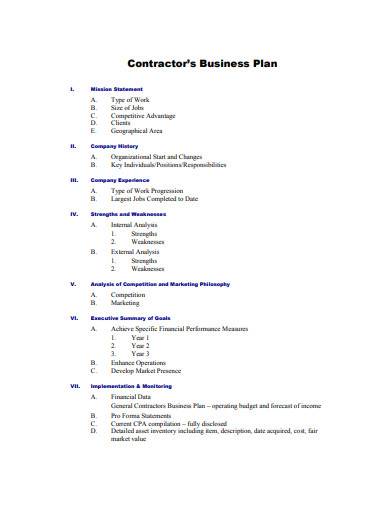Blueprint for Success: Navigating the World of General Contracting
Starting a general contracting business can be both an exciting and challenging endeavor. With the construction industry continuously evolving, understanding the nuances of managing projects, budgets, and client relationships is essential for success. A general contractor not only oversees the construction process but also plays a vital role in coordinating with various subcontractors, suppliers, and laborers to ensure that everything runs smoothly.
In a landscape filled with opportunities, aspiring contractors must be equipped with a solid foundation of knowledge and skills. From navigating local regulations and obtaining necessary permits to estimating costs and managing timelines, the journey to building a successful general contracting business requires careful planning and strategic thinking. As we explore the key elements that contribute to a thriving contracting venture, we will uncover the tools and insights needed to turn your vision into reality.
Essential Skills for General Contractors
A successful general contractor must possess strong organizational skills. Managing various projects simultaneously requires the ability to prioritize tasks, allocate resources efficiently, and keep everything on track. This entails not only overseeing the timeline of construction but also coordinating subcontractors, suppliers, and clients. Being organized helps in avoiding delays and staying within budget, which is crucial for maintaining a positive reputation in the general contracting business.
Effective communication skills are equally vital for general contractors. They need to interact with a diverse range of stakeholders, including clients, workers, and suppliers. Clear and concise communication fosters better collaboration and ensures that everyone is on the same page. Whether it's discussing project specifications with clients or resolving conflicts on-site, having the ability to articulate ideas and listen actively can make a significant difference in project outcomes.
Lastly, a strong understanding of construction practices and regulations is essential. General contractors must be well-versed in local building codes, safety regulations, and industry standards. This knowledge ensures that all work is compliant and meets quality expectations, protecting both the contractor and the client. Continued education in construction techniques and regulatory changes helps maintain a competitive edge in the ever-evolving general contracting business.
Navigating Regulatory Requirements
Understanding and complying with regulatory requirements is crucial for any general contracting business. These requirements can vary significantly depending on the location, type of work, and scale of the projects. It is essential for contractors to familiarize themselves with local building codes, zoning laws, and safety regulations to avoid legal issues and fines. Staying informed about changes in legislation and industry standards can help contractors mitigate risks and ensure that their work meets all necessary guidelines.
Licensing is another critical aspect for general contracting businesses. Most states and municipalities require contractors to obtain specific licenses to operate legally. This process often involves demonstrating relevant experience, passing exams, and maintaining insurance coverage. Contractors should also be aware of the bonding requirements, which provide a form of security for clients and ensure that projects are completed as promised. Failing to secure the proper licenses and bonds can lead to penalties, project delays, and reputational damage.

Finally, maintaining compliance with labor laws is vital for successful general contracting. This includes understanding wage requirements, worker classification, safety regulations, and employment practices. Implementing comprehensive safety programs not only protects workers but also reduces liability and insurance costs. Contractors should keep thorough records and regularly review their practices to ensure adherence to all applicable labor laws. By doing so, they can foster a safe work environment and build a strong reputation in the industry.
Building Client Relationships
Establishing strong client relationships is crucial for success in the general contracting business. Clients often seek contractors who not only deliver quality work but also operate with transparency and integrity. Taking the time to understand a client's vision, needs, and concerns fosters trust and sets the foundation for a positive working relationship. Regular communication throughout the project helps clients feel involved and reassured that their investment is in capable hands.
Listening actively to client feedback can significantly enhance the working relationship. By addressing concerns promptly and making adjustments when necessary, contractors demonstrate their commitment to client satisfaction. Moreover, sharing progress updates and celebrating milestones together reinforces collaborative spirit and illustrates that the client's project is a priority. This level of engagement can turn a one-time client into a repeat customer.
Beyond project completion, maintaining contact with clients can yield further benefits. Following up after a project concludes shows clients that their experience matters long after the work is done. Sending thank-you notes or surveying them for feedback can provide valuable insights and perspectives that enhance future projects. Additionally, satisfied clients often become powerful advocates, referring new business and enhancing the reputation of a general contracting business in the community.